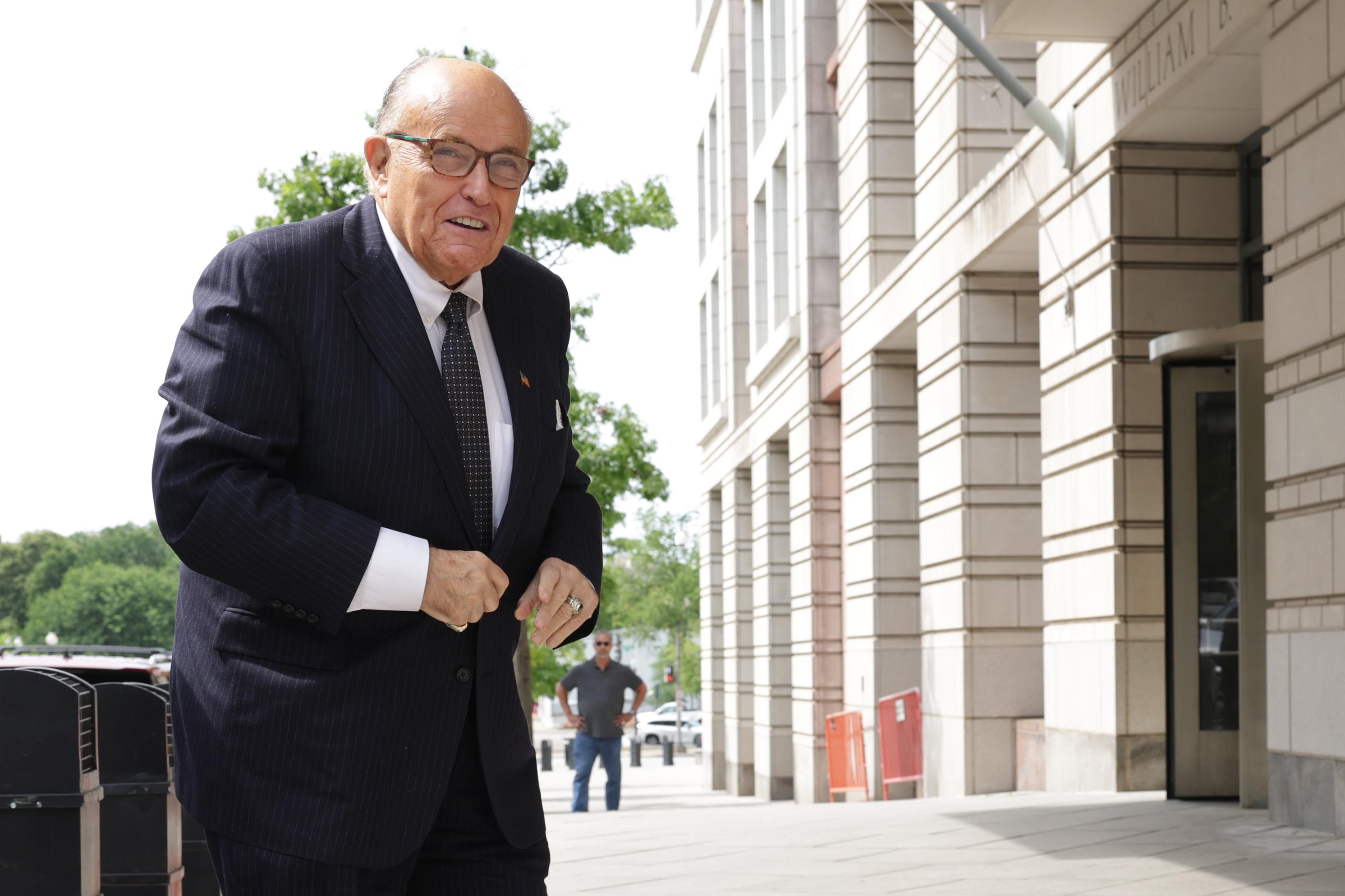Expanding on CNN’s reporting one day earlier, the New York Times on Wednesday reported that former Donald Trump attorney Rudy Giuliani was interviewed last week by investigators from special counsel Jack Smith’s office as part of “a proffer agreement.” While the Times was not specific about what Giuliani’s voluntary interview means, such proffer sessions are almost always the final step toward a plea deal. If one is consummated in Smith’s investigation of Trump’s efforts to overturn the 2020 election—which were spearheaded by Giuliani—it would be both a deeply ironic end for one of the country’s most bulldog former prosecutors and also a devastating blow to the former president.
As someone deeply enmeshed in the New York City white-collar criminal defense world during Giuliani’s tenure as U.S. Attorney for the Southern District of New York, reports that he sat for an extensive proffer session with prosecutors investigating the events surrounding the Jan. 6 riot boggle my mind.
To say that “back in the day” Rudy was an extremely aggressive prosecutor, known for his overly punitive and often unnecessarily harsh prosecutorial tactics, would be an understatement. The threat he posed prompted the era’s most senior, distinguished members of New York’s white-collar criminal defense bar—principally Bob Morvillo, Gus Newman, and Norman Ostrow—to create the New York Council of Defense Lawyers. They quickly enrolled my generation of white-collar defense attorneys to join the organization and help coordinate the effort to combat the threat Rudy posed. The NYCDL’s efforts to promote criminal defense values continued long after Rudy moved on, and continue to this day.
That someone who was once the face of “lock ’em up” America may now be considering any kind of plea agreement—and possibly cooperating against would-be co-defendants, like his high-profile previous client—must have the three principal founders of the NYCDL spinning in their graves. But this is exactly what the reported proffer session portends.
Proffer sessions involving a prospective defendant do not occur out of the blue. Indeed, they almost always represent the near culmination of an ongoing process that begins with a target’s decision that he or she does not believe they can win at trial and therefore must make a deal. Counsel for the target must then determine the significance of the information the client can provide. The more powerful the testimony, the more favorable the potential deal. The more important the person or persons the testimony implicates, the more important the proffer and potentially generous the plea terms. The more direct and unimpeachable the testimony would be, the more significant the cooperation will be, and thus, the better the deal will be for the client.
Once counsel concludes the client has something valuable to offer prosecutors and that the client can be an effective witness, the next step can be taken. Counsel contacts the prosecutors and arranges an “attorney’s proffer,” in which the lawyer, without the client, meets prosecutors to outline the general contours of what the client can provide. If the contours are unacceptable, say the client wants an agreement he will not be prosecuted for providing evidence against a lesser target, the session ends quickly. If, however, both sides see the prospect for getting something they want without giving up too much, the session gets more and more specific. It is only if the attorney’s factual representations offer enough for prosecutors to offer sufficiently reduced criminal exposure, and thus, a realistic deal may be available, that the next-to-last step, the client proffer, is taken. Giuliani has reportedly now taken that step.
Will it culminate in what is the last step of the process—a formal plea deal? If so, what would the deal be, and who would he be providing evidence against? Would the incriminating testimony cover only Jan. 6, or would it impact other potential crimes as well? Given that making a deal with federal prosecutors while ignoring Giuliani’s potential exposure in parallel events under investigation in Georgia would be malpractice, how, if at all, will a deal with DOJ also relate to Georgia? If Georgia is included, would Rudy also be a witness in that matter?
Even if a deal is finalized and Rudy thereafter does whatever is required of him for however long that may take, the ultimate question for Giuliani will not be answered until his cooperation is over. I refer, of course, to whether the 79-year-old former “America’s mayor” will, however things play out, end up going to prison. Plea deals are agreements between the government and a defendant and leave the sentencing judge free to ultimately impose whatever sentence he or she believes appropriate within that framework.
These questions and many more will be answered in time. While the world watches and waits, those of us who dealt with Rudolph Giuliani in New York’s criminal justice system “back in the day” surely have an increased understanding of, and belief in, karma.
